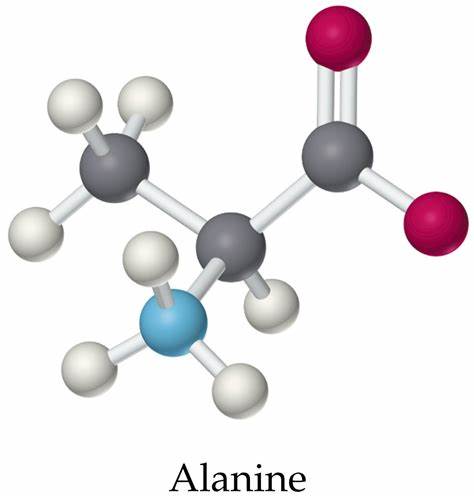Alanine, also called L-alanine or alpha-alanine (α-alanine), is among the 11 “non-essential” amino acids that your body is capable of synthesizing on its own.
It aids in many metabolic processes and provides energy for your muscles, brain and central nervous system. Some of the conditions this amino acid can help treat include fatigue, low blood sugar (hypoglycemia), liver disease, high cholesterol, enlarged prostate (benign prostatic hypertrophy) and many others.
Alanine is a non-essential amino acid that the body can produce from other amino acids, without needing to acquire it from food sources. It’s usually found in high levels in the bloodstream of most people and is one of the most concentrated amino acids in protein foods.
Among all amino acids, it is one of the most widely used for protein construction. It is considered a glucogenic amino acid and is synthesized from pyruvate and branched chain amino acids (BCAAs), including valine, leucine and isoleucine.
What does alanine do for your body? What is the alanine function? Some of the most important functions include:
1.Playing a role in converting sugar (glucose) into energy — it is involved in the glucose-alanine cycle, which takes place between tissues and the liver
2.Processing B vitamins
3.Breaking down tryptophan and vitamin B6
4.Helping with acid metabolism
5.Increasing immunity
6.Facilitating the metabolism of tryptophan
7.Forming carnosine, anserine and of pantothenic acid (vitamin B5)
8.Providing the brain and central nervous system with energy
9.Helping build and repair muscle tissue
10.Helping the liver to detoxify the blood
11.Protecting cells from oxidative damage
12.Helping maintain normal cholesterol levels
L-alanine is somewhat different than beta-alanine (β-alanine). Beta-alanine is a modified version of the amino acid and a substrate of carnosine, which has been shown to help prevent fatigue during high-intensity exercise.
Studies show that carnosine acts as a buffer to prevent muscle cells from becoming acidic, thereby decreasing muscle fatigue during exercise. This is why β-alanine is fast becoming a popular aid in sports performance. A typical daily dose of beta-alanine is between four to six grams daily, taken in divided doses two to three times daily for a period of about two weeks. One thing to be aware of is that it can cause a tingling sensation of the skin or itchy lips, which is generally harmless and temporary.
Post time: Mar-12-2020
